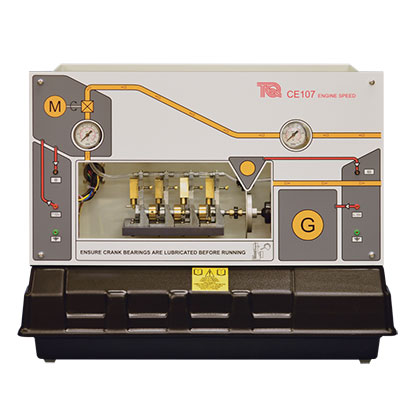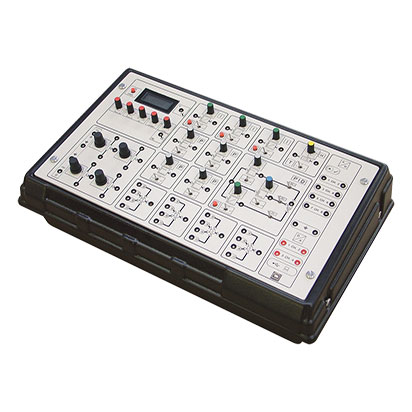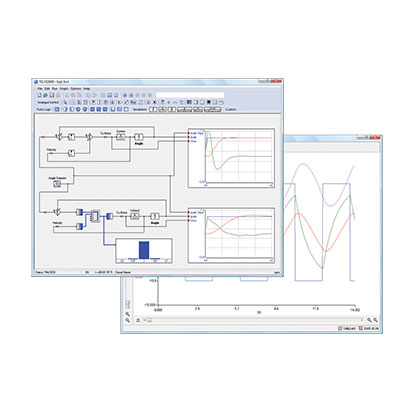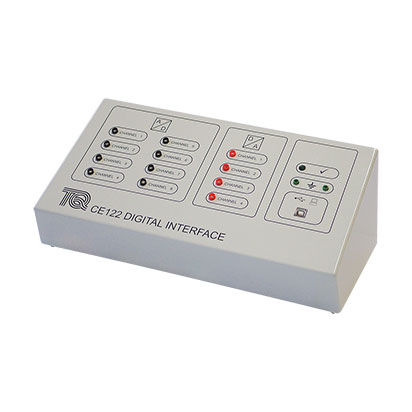Description
A compact self-contained bench mounting apparatus designed to allow students at all academic levels to investigate basic and advanced principles of control including control of non-linear systems and inner-loop feedback techniques.
The CE107 Engine Speed Control Apparatus shows the problems of regulating the speed of rotating machines, especially problems with non-linear control systems. It is a scale-model engine, driven by compressed air (not supplied) for safety. The basic purpose is to adjust a motorized valve to regulate the engine speed under load. A d.c. generator connects to the engine output and loads the engine.
More advanced experiments show:
- Non-linearity compensation using dither signals
- Multiple loop and minor loop feedback
- System modeling from step response information
- P I control and root locus methods
The engine dynamics are similar to those of a typical ignition compression engine coupled to a dynamometer-controlled test bed. It is an ideal physical model to help engineering students at all academic levels to gain invaluable practical experience.
Key features:
- Self-contained and compact bench-mounting unit to show problems of speed control in non-linear systems
- Small-scale compressed air-powered piston engine to mimic a full-size engine with realistic results
- Front panel includes a mimic diagram of the process so students can see what they are controlling
- For basic and advanced experiments with speed control and non-linearity compensation
- All inputs and outputs buffered for connection to TecQuipment’s optional controllers or other suitable controllers
Learning outcomes:
- The use of dither signals in the compensation of system non-linearities
- The measurement of system dynamics from step response information
- Inner loop feedback compensation
- P I controller design








